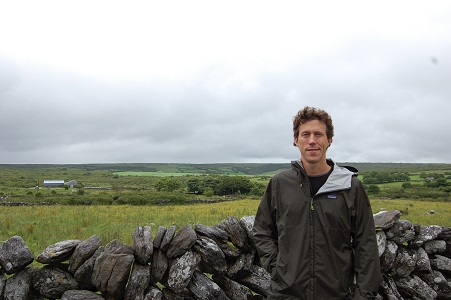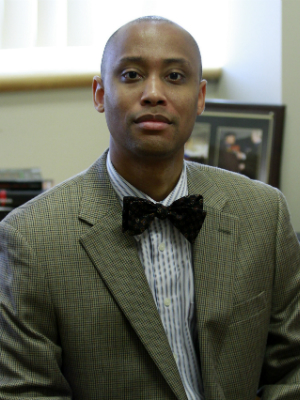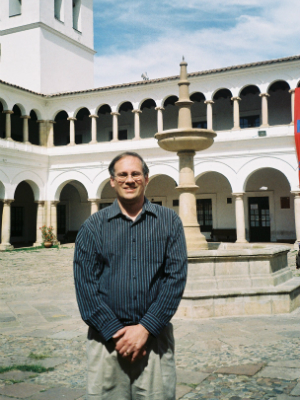Master of Arts with a Major in History, General
Nothing prepares students for the future like a glimpse back into the past, which makes our History department the perfect place to hone your skills in research, critical thinking and writing. With such a solid liberal arts background, History majors are prepared for careers in law, business, banking, politics, journalism, teaching and government, not to mention research and teaching in specialized fields such as museum studies, women's issues and the development of the world's diverse societies and cultures, both ancient and modern.
For more information, please see the Academic Catalog. A program sheet, which provides a required coursework sequence, is available for download in the Courses tab below.
The History Department at the University of West Georgia offers an exciting and versatile M.A. program in History to prepare students for careers in teaching, law, business, government, museum work, archive management, public history, and library and information science. There are course offerings in American, World, European, Public History, Atlantic World, and War and Society in Global Perspective; a certificate program in Museum Studies in conjunction with the Atlanta History Center; and a post-M.A. certificate in Public History. Working closely with our faculty, you will be trained to think critically, write clearly, and analyze effectively.
There are 5 Tracks available in the MA in History:
- History Thesis Track: requires twelve hours in a major field, six hours in a minor field, and six thesis hours. Included in the coursework must be at least two courses in World History.
- Public History Thesis Track: requires twelve hours in public history courses (including HIST 6200: Public History Seminar), nine hours in a history field, and three hours in an internship. Included in the coursework must be at least one course in World History.
- Public History Portfolio Track: requires twelve hours in public history courses (including HIST 6200: Public History Seminar), nine hours in a history field, and three hours in an internship. Included in the coursework must be at least one course in World History.
- Generalist Non-Thesis Track: requires nine hours in US History, nine hours in World History, two history electives, and written and oral examinations.
- Generalist Non-Thesis Portfolio Track: requires nine hours in US History, nine hours in World History, two history electives, and an exit portfolio.
Career Opportunities
Link to Additional Career Information:
https://www.buzzfile.com/Major/History
External Resource
Program Location
Carrollton Campus
Method of Delivery
Courses are primarily taught face to face. Some courses may be available partially or fully online, however, this is not an online program.
Accreditation
The University of West Georgia is accredited by The Southern Association of Colleges and Schools Commission on Colleges (SACSCOC).
Credit and transfer
Total semester hours required: 30
Maximum Hours Transferable into program: 6
A transfer credit evaluation will be completed by the UWG Transfer Team (transfer@westga.edu). Course application to a program is subject to review by the department.
Graduate students may be able to reduce their cost through prior learning, previous degrees earned at UWG, or transfer credits. We have created a tool to help students estimate their tuition costs.
This program may be earned entirely face-to-face. However, depending on the courses chosen, a student may choose to take some partially or fully online courses.
Save money
UWG is often ranked as one of the most affordable accredited universities of its kind, regardless of the method of delivery chosen.
Details
- Total tuition costs and fees may vary, depending on the instructional method of the courses in which the student chooses to enroll.
- The more courses a student takes in a single term, the more they will typically save in fees and total cost.
- Face-to-face or partially online courses are charged at the general tuition rate and all mandatory campus fees, based on the student's residency (non-residents are charged at a higher rate).
- Fully or entirely online course tuition rates and fees my vary depending on the program. Students enrolled in exclusively online courses do not pay non-Resident rates.
- Together this means that GA residents pay about the same if they take all face-to-face or partially online courses as they do if they take only fully online courses exclusively; while non-residents save money by taking fully online courses.
- One word of caution: If a student takes a combination of face-to-face and online courses in a single term, he/she will pay both all mandatory campus fees and the higher eTuition rate.
- For cost information, as well as payment deadlines, see the Student Accounts and Billing Services website
There are a variety of financial assistance options for students, including scholarships and work study programs. Visit the Office of Financial Aid's website for more information.
Coursework
There are 5 Tracks available in the MA in History:
- History Thesis Track: requires twelve hours in a major field, six hours in a minor field, and six thesis hours. Included in the coursework must be at least two courses in World History.
- Public History Thesis Track: requires twelve hours in public history courses (including HIST 6200: Public History Seminar), nine hours in a history field, and three hours in an internship. Included in the coursework must be at least one course in World History.
- Public History Portfolio Track: requires twelve hours in public history courses (including HIST 6200: Public History Seminar), nine hours in a history field, and three hours in an internship. Included in the coursework must be at least one course in World History.
- Generalist Non-Thesis Track: requires nine hours in US History, nine hours in World History, two history electives, and written and oral examinations.
- Generalist Non-Thesis Portfolio Track: requires nine hours in US History, nine hours in World History, two history electives, and an exit portfolio.
Downloads
General
A M.A. level introduction to the major approaches and arguments regarding military, social, and political developments in Europe, 1400s to 1700s.
Examines the political, economic, social, cultural, and military history of what George Kennan called the seminal catastrophe of the twentieth century.
Courses on topics in European history not usually offered by the department.
Courses on topics in world history not usually offered by the department.
An examination of the development, philosophies and activities in the field of public history and the ethical issues which public historians face.
An examination of the philosophy, ethics and practice of oral history, with specific training in interview and transcription techniques, and the use of oral history in historical research and analysis.
An introduction to the principles of archival theory and management from appraisal and acquisitions through arrangement, description, preservation and public access. Includes a practicum experience.
An introduction to the philosophy, theory and practice of museum work and a survey of various functions of a museum, including collections, research, education and interpretation, exhibits, and administration.
A survey of American architecture in its social and cultural context form colonial America through the present day.
Europe in the early modern era, focusing on the cultural and political history of the Renaissance, the development of overseas empires and the evolution of a scientific world view.
The development of the Roman Catholic Christian traditions, seen within the context of 16th century Europe.
This course will survey European social, cultural, and political history from 1789 to 1914. It will consider how men and women of different classes and cultures experienced and understood Europe's lurch into modernity.
A study of the political and social history of Europe in the 20th century with emphasis on the continuity of events and their interrelation.
A political and social survey of the origins of the Cold War, its development and conclusion.
An analysis of the Holocaust, emphasizing aspects of modern European and Jewish history, the origins of European anti-Semitism, and the varied experiences of camp inmates, resisters, perpetrators, bystanders and liberators.
An introduction to the history of Mexico since independence, with special emphasis on selected political, economic and social themes, including US-Mexican relations.
An introduction to the history of relations between Latin America and the United States from 1783 to the present, focusing on the political, economic and social interaction between Americans and Latin Americans.
This course aims to introduce students to the roles of women of all social classes in different periods of Ancient Greece and Rome, as well as the problems of studying women's history in the Greco-Roman world. The course will combine a chronological approach with the thematic one, as each week will focus on women's roles and participation in a specific period and/or sphere of activity, such as religion, politics, the dramatic stage, the family and household, and law.
An introduction of the history and historiography of South Africa through selected economic, environmental, social and political themes.
An examination of the historical background, events, and impact of the Vietnam War.
This course combines a chronological approach with a thematic one, in order to address such topics as evolution of the government system, social conflict, religion, the Roman family, and the Roman army over the course of the Roman Republic from the expulsion of the kings to the assassination of Julius Caesar.
An introduction to the modernization process within China from 1500, emphasizing East-West conflict and the emergence of the People's Republic of China.
Europe from 1789-1815, with particular emphasis upon France. A study of the French Revolution as the classic model for modern revolutions.
A survey of French history from Napoleon's defeat at Waterloo in 1815 to the present Fifth French Republic. An examination of the role of French influence on European and world cultures over the last two centuries.
A political and social study of Germany since unification with heavy emphasis on the 20th century (1871-Present).
A political, social, and cultural study of Ireland since 1780 with special emphasis on the evolution of Irish nationalism and Anglo-Irish relations. The roots and history of 'the Troubles' in Northern Ireland will also be explored.
An introduction to the history of Japan, emphasizing the nineteenth and twentieth centuries, Japanese immigration to the United States, and Japanese-American relations.
An analysis of Soviet history from the October Revolution of 1917 to the collapse of the Soviet Union in 1991, with an emphasis on Stalinism and post-Stalin developments.
The history of early America, from the Age of Discovery through the establishment and growth of England's New World colonies, with emphasis on the evolution of American society and culture.
A study of the origin of America's break with Great Britain, with emphasis on the causes of the Revolution, the course of the War of Independence, and the establishment of the new nation's political, social and cultural institutions.
The political, diplomatic, economic and social history of the United States from the end of the American Revolution through the War of 1812.
American history from the end of the War of 1812 to the Mexican War, with emphasis on politics and society. Western expansion also will be emphasized.
American history from the end of the Mexican War to the Compromise of 1877, with special attention to the political, military and social history of the Civil War.
A study of American understanding of ecology, wilderness, resource usage, conservation, agriculture, technology, and natural hazards from colonial times to the present.
This history of American warfare from the colonial conflicts through the wars of the 20th century, with emphasis on society's impact on warfare and warfare's impact on American society.
Traces the history of the development of American sports from the Colonial period to the present with emphasis on the social, cultural, economic, and political factors that influences American society.
Examines the most important social and cultural trends in America from the colonial period to the end of the Civil War.
Examines the most important social and cultural trends in the US since the Civil War.
An examination of the diverse experiences of women and their impact on American History up to 1877.
An examination of the various experiences of women and their impact on the history of the United States since 1877.
The history of the Civil Rights Movement with emphasis on major leaders, organizations, and events in the twentieth century black freedom struggle.
Explores the social, political, cultural, economic, and diplomatic history of the U.S. from the end of Reconstruction to the aftermath of World War I.
Explores the social, political, cultural, economic, and diplomatic history of the U.S. from the end of World War I to the end of World War II.
Explores the social, political, cultural, economic, and diplomatic history of the U.S. in the second half of the twentieth century.
A survey of Georgia history from prehistory to the present, emphasizing politics and society.
A study of the approaches to researching and analyzing the history of the varied families and communities in southern history.
A study of the American South from the Colonial Period through the Reconstruction with special attention on nineteenth century politics and society. Ideas and events leading to secession and Civil War are particularly emphasized.
A study of the American South since 1865 including the interaction of economic, political, social and cultural factors, especially in the context of struggles in rural and urban communities and in the textile industry.
A study of the history of American religious beliefs, practices, and influences on American society, from its colonial settlement to 1800.
A study of the history of American religious beliefs and practices, and religion's influence on American society, from 1800 to present.
Courses on topics not usually offered by the department.
This course is designed as a graduate reading course in American foreign policy. This course will discuss the foreign policy process, the history of American foreign policy and its traditions since 1898, and a variety of approaches to understanding foreign policy. The goal of the course is to provide students with the theoretical and analytical tools needed to understand the history and current processes of American foreign policy. The course will incorporate current events in American foreign policy, as well as historical discussion, as a means of demonstrating the academic concepts of the course in practice.
Advanced training in arranging, describing and processing archival collections for graduate students interested in archives work.
Examines methods and theories for studying material culture from an interdisciplinary perspective, analyzing what material culture reveals about the culture and society in which it was created with an emphasis on America. Required for Museum Studies Certificate.
An examination of the traditional, expressive, shared culture of various groups in the United States through its history, emphasizing analysis of regional folklife traditions and folklife research and fieldwork methods.
This course is for students completing degree requirements who will be using staff time or University facilities and for whom no regular course is appropriate.
Study of administrative functions: governance, financing, grant-writing, public relations, marketing, human resources, accreditation, and museum law and ethics. Taught in association with Atlanta History Center.
An examination of the processes by which a museum manages it collection. Taught in association with Atlanta History Center and involves a practicum experience.
Studies include interpretative principles and techniques, school programs, adult and community programs, staffing, marketing and other programming logistics. Taught in association with Atlanta History Center.
An examination of how museums create exhibits using various interpretive techniques, from planning and research through exhibit design, display techniques, script-writing and installation. Taught in association with Atlanta History Center.
Individual study with the instructor taken by majors with permission of chair and instructor on a topic not regularly offered by the dept. May involve a research paper, field research or reading and discussion.
Experience in applying history in a museum, historical society, archive, historic preservation agency, or other public history setting. Students must maintain a journal develop a portfolio of their work.
Historiography, or the historian's craft, is an introduction to the history of historical thought from its emergence in the classical world to the present. The course will cover many of the major historigraphical schools and ideas that have developed over time. Student will study the tools and methods of various historians, how they formulate hypotheses from gathering of information, and how different historians write about the same era or subjects. Required of all M.A. history graduates.
Assignments by major professors which could involve special lectures, research and readings. Approval of major professor and department chair needed before enrolling.
A seminar class with specific titles announced at time of offering. Transcript entries carry different nomenclatures to correspond to material taught. Seminars will vary according to topic and the specialty of the professor offering the course.
A seminar class with specific titles announced at time of its offering. Transcript entries carry different nomenclatures to correspond to material taught. Seminars will vary according to topic and the specialty of the professor offering the course.
A seminar course with specific titles announced each term. Transcript entries carry different nomenclatures to correspond to the materials taught.
A seminar class with specific titles announced at time of offering. Transcript entries carry different nomenclatures to correspond to material taught. Seminar will vary according to topic and the specialty of the professor offering the course.
This course builds on the process begun in HIST 6684 (Historiography) in training students to think, research, and write as professional historians. Students will learn to carry out advanced, original research using primary sources; incorporate historiography into their own work; and write effectively for an academic audience. Required of all M.A. history graduates.

Keith Bohannon, Ph.D.
Professor of History
Stephanie Chalifoux, Ph.D.
Associate Professor, History
Michael de Nie, Ph.D.
Professor of History
Charles Lipp, Ph.D.
Professor of History
Elaine MacKinnon, Ph.D.
Professor of History
Keith Pacholl, Ph.D.
Professor of History
Larry Rivers, Ph.D.
Associate Professor of History
Timothy Schroer, Ph.D.
Chair of the Department of General Education & Professor of History
Gary VanValen, Ph.D.
Professor of History
Colleen Vasconcellos, Ph.D.
Professor of History and History Program CoordinatorGuidelines for Admittance
- All graduate applicants must complete the online Graduate Application. A current application fee of $55 is required.
- Applicants should also review the Graduate Studies Website for individual program specific requirements and tasks that must be completed prior to admission. See Graduate Studies Application Process.
- International applicants are subject to additional requirements and application deadlines. See Procedures for International Students.
- Official transcripts all post-secondary schools attended are required and should be sent directly to the UWG Graduate Admissions Office.
Program Specific Admittance Guidelines
The minimum requirements for acceptance as a regular student in the History MA program include:
- An undergraduate major or minor in history or a closely related field, including survey (or equivalent) courses in American History and European or World History.
- A cumulative undergraduate grade point average of at least 3.0 on a 4.0 scale for all work taken at all colleges.
- An average of at least 3.0 on a 4.0 scale for a major in History or a closely related field.
- A writing sample that indicates an ability to research and write at the graduate level
- Personal statement
- 3 letters of recommendation. Electronic Recommendation Request forms will be available after your application has been submitted online.
Evidence from the personal statement and the letters of recommendation should show the applicant's abilities and needs match our resources and course offerings.
Application Deadlines
Specific Graduate Admissions Deadlines are available via the Graduate School
* Application, app fee, and document deadline
See The Scoop for more specific deadlines.
Admission Process Checklist
The Graduate Studies Application Process checklist is available here
One exception: If you will not ever be traveling to a UWG campus or site, you may apply for an Immunization Exemption. Contact the Immunization Clerk with your request.
Contact
Graduate Admissions
678-839-1394 (phone)
678-839-1395 (fax)
graduate@westga.edu
UWG Graduate Admissions
Mandeville Hall
1601 Maple Street
Carrollton, GA 30118-4160
Specific dates for Admissions (Undergraduate Only), Financial Aid, Fee Payment, Registration, Start/End of Term Dates, Final Exams, etc. are available in THE SCOOP.
Specific Graduate Admissions Deadlines are available via the Graduate School
- Conduct historical research
- Formulate and defend a historical argument in Standard English
- Demonstrate knowledge of historiography and its changes over time
- Demonstrate knowledge of the theory and practice of public history [for public history track only]
- Demonstrate practical knowledge of a subfield of public history [for public history track only]
